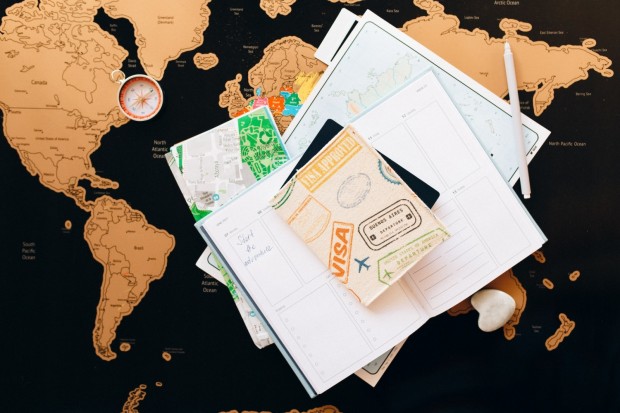
(Photo: Nataliya Vaitkevich from Pexels)
As a native from the U.S. I'd like to share some wisdom about some basic tips you have to know when traveling to my country for the first time. Trust me, knowing these will save you headaches, money, and time.
1. Understanding Visa Requirements
Most foreigners need a visa to enter for tourism purposes. You will need to make a US visa appointment at your nearest embassy or consulate, gather a few documents, and pay a fee. Before you apply make sure your passport is valid too.
Depending on where you live, getting a visa might take from a few days to a few weeks. Be sure to apply with plenty of time ahead of your trip. Once approved, most visas are valid for several years.
Besides the visa, about 40 countries are part of the Visa Waiver Program. Nationals from these countries can get an ESTA instead of a visa. There are several differences between the ESTA and the visa. For one, you don't have to go to the embassy, you can apply online, it's cheaper, and faster. However, the ESTA is valid for 2 years only.
2. Items Not Allowed Through Customs
About a million people enter the U.S. every day. Each person at any port of entry has to go through inspection by the Customs and Border Protection officers for compliance with immigration.
If you know what to expect, the process should be less stressful.
The U.S. restricts or prohibits certain items from entering the country. These include certain foods, plants, animal products, and some medications. Be aware of these restrictions when packing. A friend of mine once packed a chorizo sandwich in his backpack, and forgot about it. A security dog sniffed him out the customs line. It was all okay in the end, but watch out!
3. Rules on Tipping
Tipping is a standard practice in the U.S. and is typically expected in restaurants, taxis, and hotels. Waiters and waitresses make very little. The minimum wage has been kept low for decades. It's an unjust practice, but, it is how it currently works.
A general rule is to tip 15-20% of the pre-tax total. In some situations, a gratuity may already be included in your bill, so always check your receipt.
Do value whether the service was exceptional or not. Some people deserve a few extra dollars and some don't.
4. Add Sales Tax to All Purchases
Unlike many other countries, sales tax is not typically included in the listed price in the U.S. and it also varies by state.
What does this mean? For example, when you buy a t-shirt, it means that the total amount you pay at the register will be higher than the price you see on the price tag.
Be prepared for this additional cost. Again, this is not common practice in other countries, but it is in the U.S.
5. Diverse Cultures and Customs
You might have heard the expression "melting pot" to refer to U.S. culture. However, though there's a lot of diversity, there are some issues between identities and a lack of integration too.
As a visitor, it's important to respect the diversity and be open to different experiences. Social norms can vary significantly between regions, so do some research about the areas you're visiting.
South, West Coast, East Coast, vary greatly in terms of how things are done, speed, attitude, etc. Even within the same state there are significant differences. I grew up in Miami, Florida, which is a completely different world than Tallahassee, which is also in Florida.
Salt Lake City, for instance, has a population that is mostly is Mormon, the majority of which are members of the Church of Jesus Christ of Latter-Day Saints (LDS), and they are white.
Meanwhile, cities like Detroit, Michigan, Baltimore, and New Orleans are cities primarily black. Be prepared to encounter a country heavily diverse in all sense of the word.
6. Hire Travel Health Insurance
Unlike some countries, the U.S. does not provide free healthcare. Yes, I know. Shame.
It is crucial to arrange travel insurance with health coverage before your trip.
Without insurance, medical treatment can be very costly. Hopefully you won't have to deal with any emergencies, but in the unfortunate event that you do, better have insurance. A simple visit to the E.R. could cost you a few hundreds of dollars.
7. Driving in the US As A Visitor
If you plan on driving, understand the traffic laws as they can vary state by state. An international driver's license is usually acceptable, but some states require a U.S. driver's license.
Always remember, in the U.S., we drive on the right side of the road. Most rental cars are automatic. The majority of highways are straight, so it shouldn't be too tough to get used to driving here, compared to driving in remote areas in the Philippines or India.
Final Words on Visiting the US
Visiting the U.S. can be an exciting and enriching experience. Being prepared and understanding these top 7 tips will help you navigate through your journey more confidently and safely. Happy travels!
This article is copyrighted by Travelers Today, the travel news leader
* This is a contributed article and this content does not necessarily represent the views of travelerstoday.com



